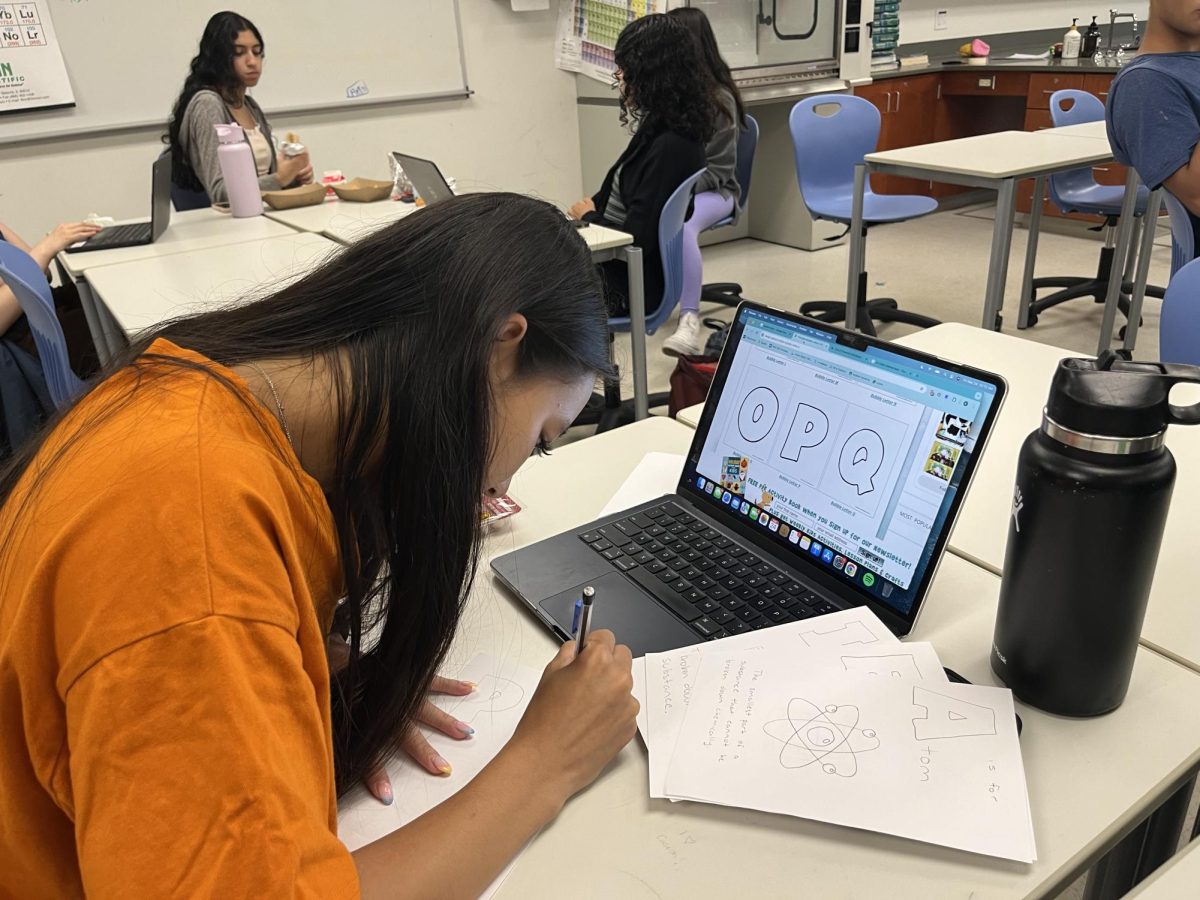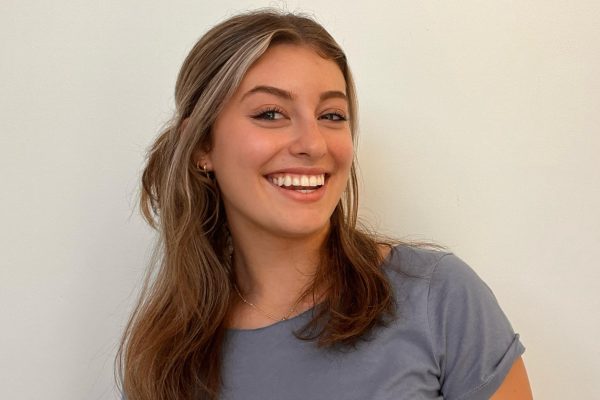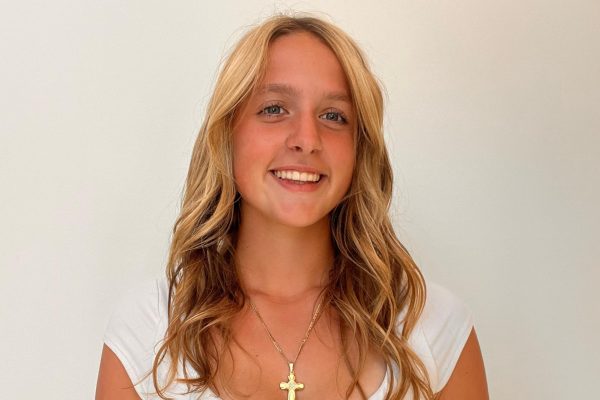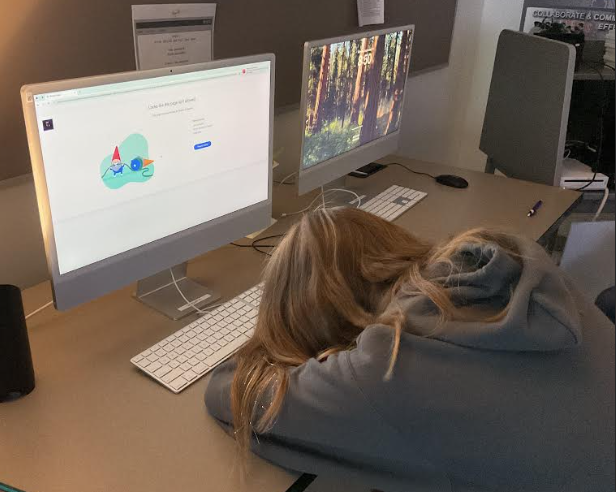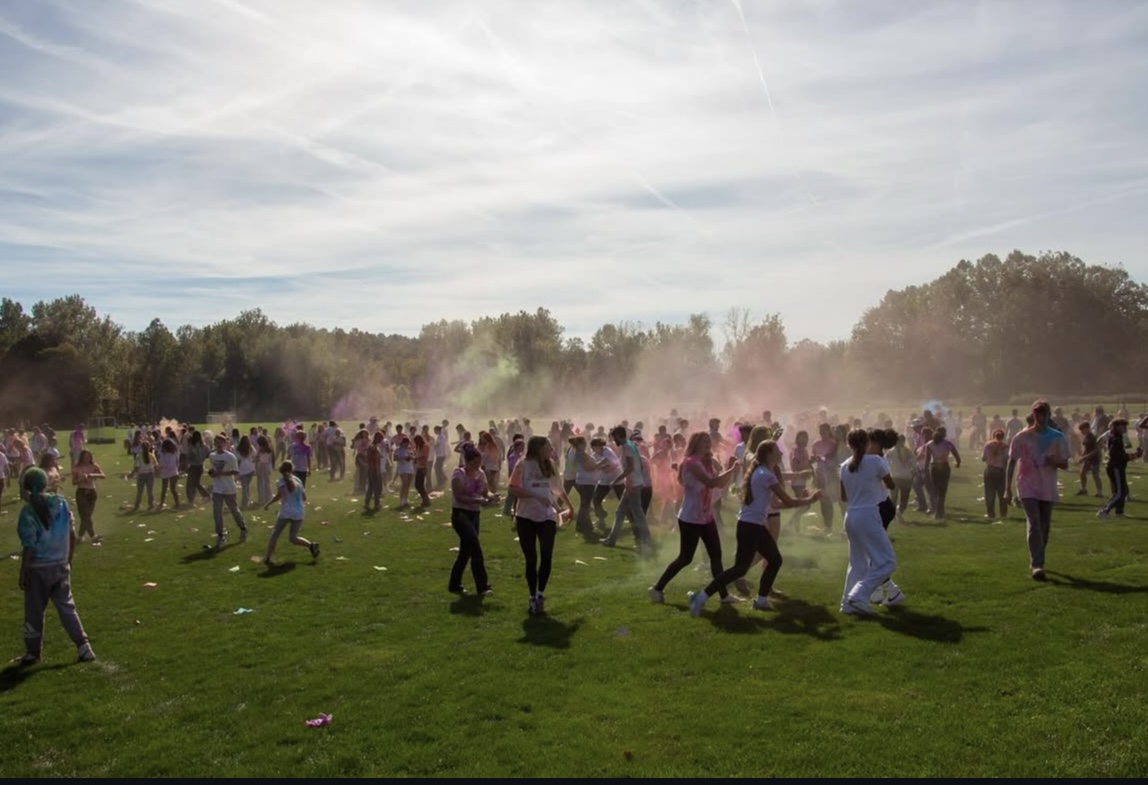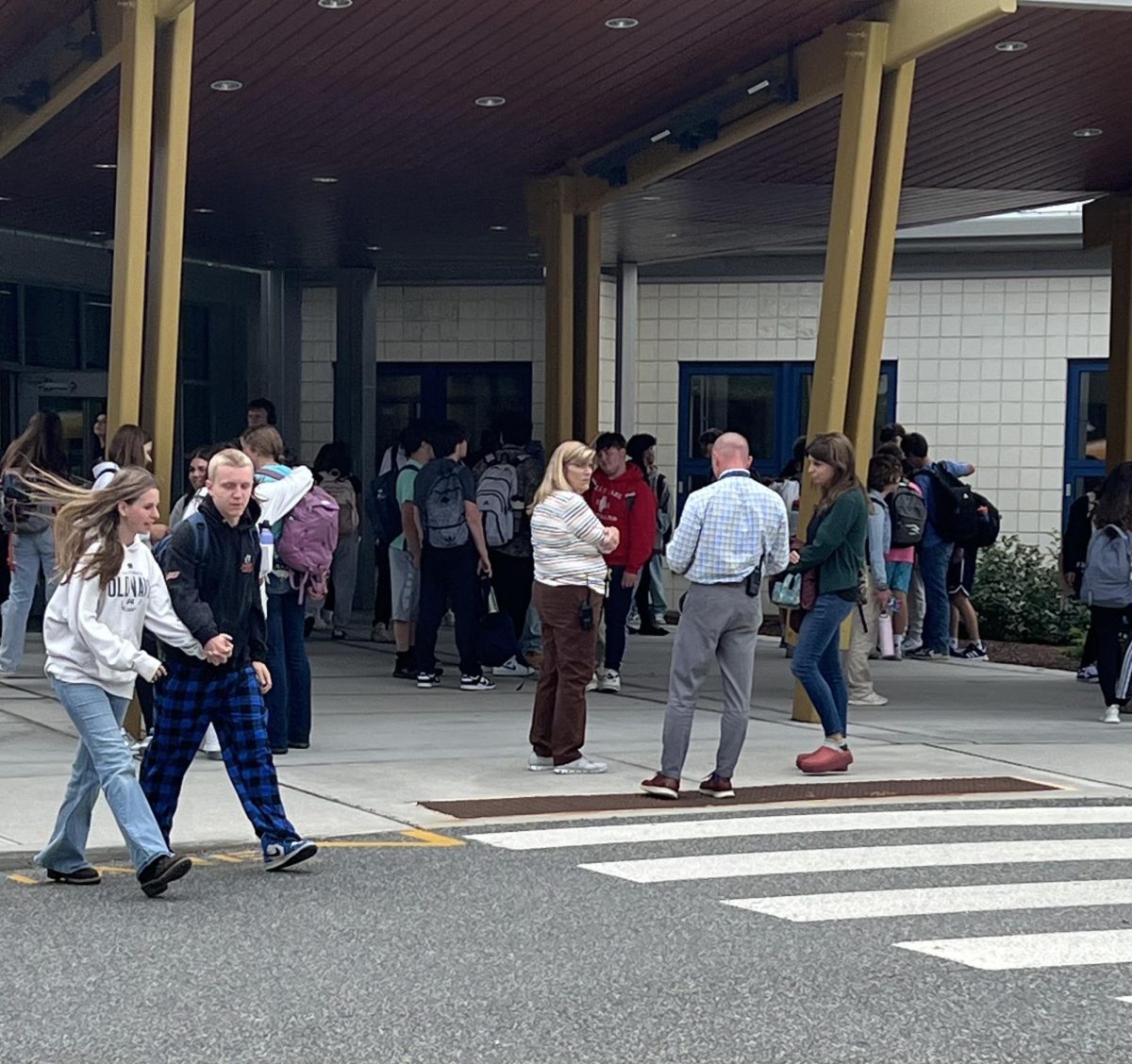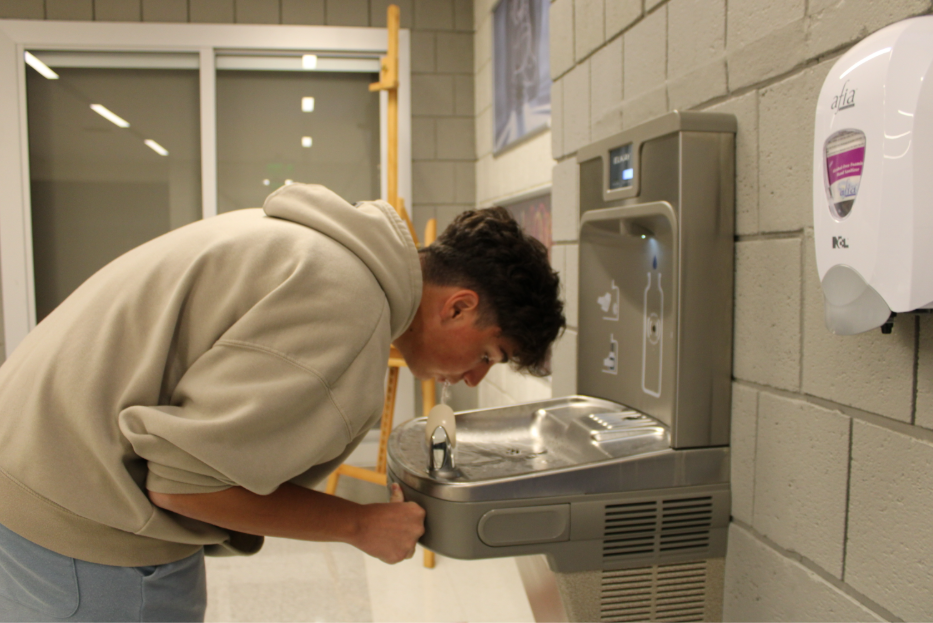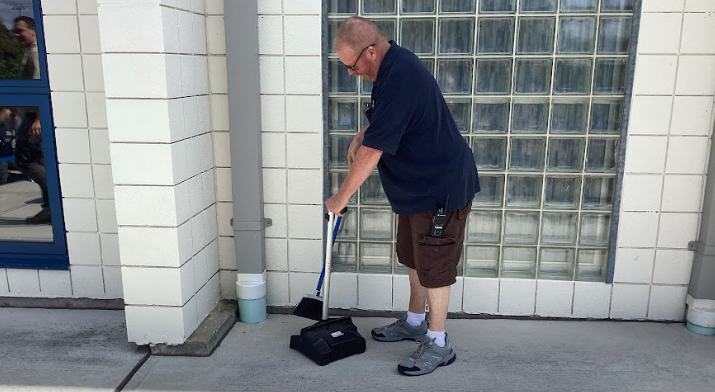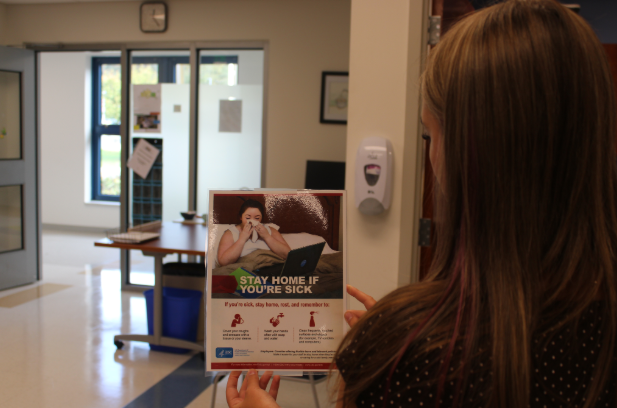WOODBURY — Most students and teachers at Nonnewaug High School are preparing for finals during late May. Many students taking AP courses do not have a class final since they take the AP exam, although some classes that are part of the UConn Early College Experience program still have a final exam ahead.
But what do teachers do with their AP students once the exams are over? Every AP class, from math to art, has different ways of keeping class time busy after AP tests are sent to the scorers.
Science
Melissa Hodges, the AP Chemistry teacher at NHS, lets her students pick their own projects.
“Students will be given a list of 12 different projects that they get to choose from and each kid will be responsible for one of them,” said Hodges. “They include research projects, career research, designing their own labs. They get to pick which one they want to do and that’s going to be our focus for the rest of the school year.”
Toby Denman, the AP Biology teacher, likes to have fun with his students and relieve the stress with fun learning activities.
“We’re going to have fun, just hang out and relax,” said Denman. “We have a pig dissection that’s coming up. There’s an AP Biology vs. AP Environmental Science scavenger hunt. Hoping for high-fun, low-stress activities. We are still learning things, it’s just hopefully in a fun and low-key way.”
Kathleen Yocis, the AP Environmental Science teacher, along with Denman, likes to have fun in class time while getting some work done, too.
“They write a political activist letter to a politician or some kind of leader that might be able to make changes in environmental policy, and we watched an environmental video,” says Yocis. “We will go out and do a scavenger hunt of environmental things they have to find on the list, then they have to do a PowerPoint presentation on it. Lastly, they are in an ECE-level class, so they have to do a final exam, which is a project.”
Bill Pease, the AP Physics teacher, focuses the remaining of the year getting his students ready for their ECE exam.
“We do a couple of labs and an additional unit because we are an ECE class,” said Pease. “Most of the kids in the class are taking the ECE class so we do a couple things to get ready for them and then we take the ECE test for the final.”
English
Science isn’t the only subject that has fun after exams are over. English also tries to include some fun in their end-of-year activities.
Conor Gereg, the AP Literature teacher, chooses to explore topics that couldn’t be studied during the year.
“Our AP exam was May 8, so our final month of school we look at a unit that we didn’t look at in the academic year, and that is short fiction,” said Gereg. “Students will team up and take apart an American short fiction piece of their choosing, and they will look at some of the fiction elements we studied this year and apply them to short stories.”
Jess McKay’s class uses their work in AP Research to complete their MBLE presentations.
“AP Research finalizes their research, so they make an academic poster of their entire year’s worth of their research project, and it mimics basically like a dissertation that you would do in a college or university,” said McKay. “At the MBLE showcase, some students will have theirs on display and then they will do a scrapbook of the progress they’ve made this year.”
Ben Guerrette’s AP Language class has one more creative and fun final project to complete.
“We’re working on like one big final project that sort of lets us get away from some of the rules that we have to do for the essays for the AP Lang exam, but applies some of the skills,” said Guerrette. “So, it’s sort of a big end-of-the-year project they’ve been working up to, but a little bit more fun. They get to make more choices. So they’re making a true crime podcast, where they have to try to solve an unsolved murder.”
Math
Even though math might seem like a lot of work, the AP teachers make it fun and try to give their students a break from all the post-stress about the exams.
Ray Robillard, the AP Computer Science and AP Calculus teacher, believes his students have worked hard and deserve a more relaxed end of the year.
“We explore topics that are related to the subject but not in the curriculum,” said Robillard. “We do have some fun activities. We watch some movies related to computer science and calculus. It’s usually driven by what the students want to do. The demands and expectations of an AP class are quite a bit more than a non-AP class, and because of that, I think the students have earned the ability to have a little more relaxed final month of the school year.”
For AP Calculus’ final month, Laurenn Bertoglio has her class do one more final project.
“We do a calculus project,” said Bertoligo. “They have to find a recipe, and every number that’s in the recipe, they have to replace it with something from calculus. They get extra credit if they make the recipe.”
Nicole Cowles has her AP Probability and Statistics class collect and analyze data from students around the school and turn it into a presentation for the final month of class.
“Our class is a UConn class, so first they have to take the UConn final,” said Cowles. “Then they have to come up with a topic. They can work in pairs if they want. They collect the data using all the things we’ve learned about collecting data. Then, they have to analyze the data using everything we’ve learned about analyzing the data, and then they have to present it to the class.”
Social Studies
Along with all the other subjects, the AP social studies classes like to have a little fun while getting work done after the big test.
Marisa Christoff does an annual project with her AP Psychology classes.
“Every year, I do a project around combating the stigma around mental illness,” said Christoff. “I think it’s a good time for us to focus on taking action and working on the empathy piece surrounding psychology. Because psychology is still a fairly new science, I don’t think there’s enough understanding about psychological and psychiatric disorders.”
Michael Sturges, the AP U.S. History teacher, rewards his students with a topic of their choice that they can do their final project on.
“We do the history explorer project, which lets them choose whatever nerdy topic they want,” said Sturges. “We also do the history memes competition. Now, we’re in the process of voting to pick what U.S. history movie we want to watch. I want to reward the kids with a topic they enjoy that they themselves have picked, and the history memes competition is this fun continuity through all the years that they get to contribute to.”
Rebecca Trzaski lets both her AP European History and AP Government and Law classes choose what their final month will look like.
“My AP Euro class, we usually do what I call a grand debate, so they get to pick the most influential person in history, who they think is, and then we face off in a series of debates, and then there’s a winner,” said Trzaski. “My AP Gov class, we’re doing a civil rights and liberty project, and then they’ll do a current events project. So, it’s just kind of like a hodgepodge of whatever they want to do. So, in teacher talk, it would be considered performance-based assessments, where it’s very student-driven rather than test prep because we spent a lot of time throughout the year doing test prep.”
World Languages
The language department is different from the other AP classes. They choose to teach their classes about the different countries’ cultures.
Kate Peterson, the AP French teacher, likes to keep her kids learning by showing them French culture while making it fun.
“The first day [after the exam], we debrief and we talk about what worked and the different challenges of the exam, and then we celebrate,” says Peterson. “We surround ourselves with French culture and things we didn’t have time for during the school year. We are going to watch some really fun movies I’ve been saving for the AP kids.”
Matt Greaves, the AP Spanish teacher, also likes to add a little culture into his fun.
“After AP Spanish, we do some communication activities,” says Greaves. “Culture stuff, there’s an element of choice where I give the students an option, perhaps watch another film — try to make it applicable but also make it light and fun.”
Visual Arts
AP Art puts together an art show for all the students to display work when all the testing is done.
Genna Riggi, AP 2-D Art and Design teacher, along with AP Art teacher Leeza Desjardins, hosts the art show for all students to enjoy after APs are over.
“After the AP test is done, we celebrate the completion, especially the art portfolios, to be able to reflect on the success of them,” says Riggi. “Then, AP students help to prepare for the art show, printing and matting their work, especially because the AP Art is on the bleachers, so they get a big area for their work. They also experiment with some more work and projects they were curious about doing throughout the year, so we try to enjoy and have some fun.”
Working together, Riggi and Desjardins’ seniors are in charge of the art show every year.
“We have an art show to display everyone’s yearly accomplishments of all the work they’ve done,” said Desjardins. “The seniors are in charge of the art show.”
An Administrator’s View
Every department and every teacher handles their classes in different ways after the AP exams. But Nonnewaug administrators still have expectations out of these AP teachers.
Assistant principal Nicole Lewis has high expectations for the teachers partially because she was an AP teacher in the past.
“It is my expectation that they are using the time meaningfully, and it’s a good opportunity to do meaningful stuff with students that doesn’t necessarily fit anywhere in a class or in a unit or in the curriculum,” said Lewis. “When I taught AP Seminar, after the AP exam we would do post-secondary exploration, and kids would take some interest inventories. They would do a little research about the colleges or majors they might be interested in, and then I took time to pair them up with somebody who works in that field.”
In the end, each AP teacher has their own way of finishing out the year in a beneficial way — even if there isn’t anything left to prepare for.



